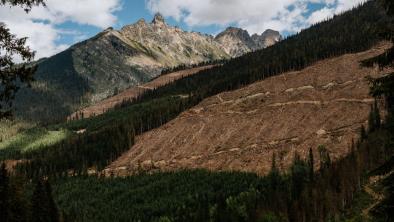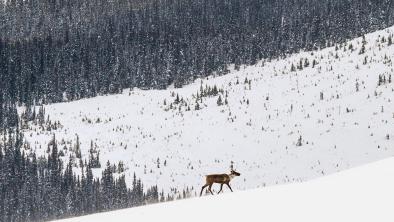Ottawa can't claim cabinet secrecy in sage grouse fight
Canadian Press
The Federal Court of Appeal says Ottawa can't use cabinet secrecy to hide decisions and debate about an endangered bird.
The court says there may be an area in the dispute over sage grouse in which cabinet confidence may be invoked.
But it also says the claim of immunity was unjustifiably broad and legally tenuous.
The fight began in February 2012 when environmental groups went to court to force then-environment minister Peter Kent to issue an emergency protection order for the bird native to the southern Prairies.
Kent's office wouldn't say if a decision had been made and the government argued the entire matter was covered by cabinet confidentiality.
Melissa Gorrie, lawyer for the environmental organization Ecojustice, said Wednesday the appeal court decision means the minister has to say whether a decision has been made.
"It also makes it clear in the (Appeal Court) decision that if he's refusing to make a recommendation — so if his decision is not to recommend emergency protection — that decision is also reviewable by the court, that that can not be covered by cabinet confidence," Gorrie said from Edmonton.
"That whole process has to be disclosed."
Environmental groups had argued that the federal environment minister is obliged to issue an emergency protection order under terms of the Species At Risk Act when a species is threatened with immediate disappearance.
The sage grouse population in southeast Alberta and southwest Saskatchewan is now measured in the dozens. Scientists say it could disappear in Alberta this year and entirely within a decade unless habitat is protected from energy and industrial development.
The government argued that decisions around cabinet secrecy aren't subject to legal review. It stated ministers must be able to talk about issues with their colleagues in private.
A Federal Court judge sided with the government in an earlier decision.
The Alberta Wilderness Association, the Western Canada Wilderness Committee, Nature Saskatchewan and Grasslands Naturalists pushed the case before the Federal Court of Appeal.
Writing on behalf of the Appeal Court, Justice Denis Pelletier said: "If the position asserted by the (government) is correct, it would have the effect of sheltering from review every refusal to make a recommendation for an emergency order. This cannot be so."
A call to the office of the new federal environment minister, Leona Aglukkaq, was not immediately returned.
Gorrie said the case could drag on for months, especially if the government asks the Supreme Court to hear an appeal.
"Court cases are not fast-moving beasts in the best case scenario. It takes time, but when you have something like this put forward, like this claim of cabinet confidence, it really brought everything to a halt," said Gorrie.
"For us and for our clients, it really made us pull out our hair because we're thinking here we're dealing with such an urgent situation. We're talking about emergency protection right? So now this hurdle is delaying things to a point where ... by the time we actually get this heard back in federal court, there may not be any birds left in Alberta."
This story by the Canadian Press was published in CBC News (online), the Vancouver Sun, the Edmonton Journal and the Winnipeg Free Press.


